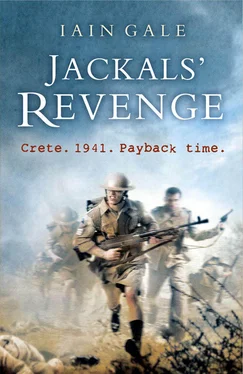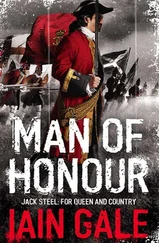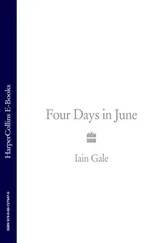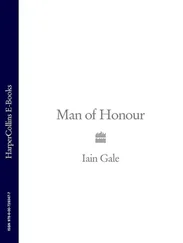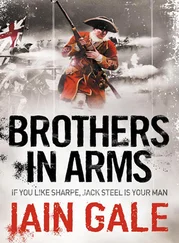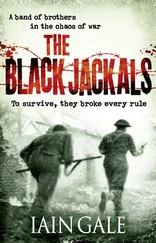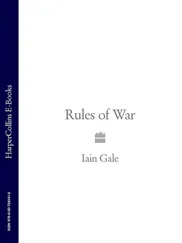After a few moments he spoke. ‘We can’t really hold them here, sir, can we?’
‘No, Charles. I don’t think we can. But we can try, can’t we?’
There was a pause. ‘D’you think we’ll make it out of here, sir?’
‘I would say we had a fighting chance. Wouldn’t you?’
‘Of course, sir. We’re the Jackals, after all. And it’s a pretty good position.’
‘Yes, pretty good.’ Lamb smiled. ‘Although it didn’t do the Spartans much good.’
‘Sir?’
‘Thermopylae, Eadie. Where are your Classics?’
‘Oh, I wasn’t very good at Classics, sir. I was more of a mathematician at school. But I do know that there was a battle here before. In history.’
Lamb nodded. ‘And we, Charles, are standing in the footsteps of heroes.’
The man who had been standing to their right, a sergeant, now spoke and Lamb realised unsettlingly that he had been there all the time. He had a curious accent, clipped and cultured, yet somehow not of the establishment, as if behind everything he said there might be an element of sarcasm. ‘Actually, sir, there have been six battles here. The Spartans, of course, the famous one against the Persians in 480 bc, but then there was another in 353 bc, one in 279 bc when the Gauls attacked, then the Romans came here in 190 bc, and then they themselves were attacked by the German tribes in ad 267, and then of course there was the Greek revolution in 1821. Byron and all that.’
Lamb shook his head. ‘Is there any end to your knowledge, Valentine?’
The sergeant shrugged. ‘Couldn’t say, sir. I was just praying that we’d get out of here alive. And that we aren’t captured.’
‘I share your sentiments.’
‘But I really do mean it, sir. You know that when the Greek revolutionary hero Diakos was captured here by the Turks in 1821 they impaled him and roasted him alive on a spit.’
Eadie blanched. Lamb laughed. ‘Valentine, I hardly think that the Germans will do that if they capture us, do you?’
Valentine shrugged and smiled. ‘Who knows, sir. Anything can happen in this war. Permission to brew up, sir.’
Lamb nodded, and as Valentine wandered off he shook his head and wondered to what god or gods that conundrum of a man had been making his prayers.
They had been through France together, and Valentine had saved Lamb’s life. Twice. They had come through the chaos of the Dunkirk retreat and had made it back home. But they had also witnessed atrocities in France and he knew that similar massacres were already happening in Greece. But roasted alive? He hardly thought so. Not even the Nazis.
Lamb sat on a rock, took the map from his pocket and wiped the sweat off his forehead. Above him on a high rock a goat moved, loosening stones and jangling up the hill pursued by a small boy who was shouting something in Greek. Life goes on, he thought. For a while at least. He wondered what lay in store for the Greeks once they too had fallen under the Nazi boot. The same fate as France? Stories had come out that in that country where he had fought so recently the population was being systematically brutalised.
He had brought out a French girl, Madeleine, and he thanked God that he had. They had become very close. Lovers. But he had left her back in London when the battalion had shipped out to Egypt with 1st Armoured Brigade in January and he wondered how far she had got with her efforts to join the Free French army that had formed in London under de Gaulle. He had no love for the man, not after what had happened to the Highlanders temporarily under his command on the Somme last year. But they said that his presence now as the leader of the Free French in London had given his countrymen fresh hope, and that, Lamb knew, was what really mattered.
He was not sure, though, what hope there was for him and Madeleine. Although he had written to her several times, he had received only one letter from her since Egypt and that of course had been censored. He wondered if he would ever see her again. It seemed to him at this moment that he would either die here or be taken prisoner and he wondered how long the war might last. Hitler must be stopped, of course. But now Britain stood entirely alone against the might of the Nazis.
He looked over at his men as they recovered from the air attack, lighting up cigarettes and making tea. They were new faces, most of them, and a precious few of the die-hards of his old platoon that he had brought out of France. Apart from Valentine and Bennett there was Private Smart, his batman and the newly promoted signals operator at Company HQ. He watched as Corporal Mays, now made up to sergeant of Number 2 platoon, cadged a Woodbine from one of the new intake, and looked across at the group of Butterworth, Hughes, Perkins and Wilkinson, corporals now, all of them. Stubbs, the heavy weapons expert, was a corporal too and had been given command of the company mortars. And Private Hale, who had been wounded at the Dyle and whom they had all given up for dead or captured, had miraculously appeared again at the depot at Tonbridge and now he too had a stripe.
Lamb counted himself particularly lucky to have managed to hold on to Jim Bennett. The army had wanted the tough cockney sergeant as a drill instructor for officer training. But Lamb had insisted and, although the Sergeant-Major didn’t know it, he had made it a condition of accepting his own promotion to captain and the company that went with it that Bennett should stay with him. A little string-pulling had done it. But then what were connections for, if not for that? He and Bennett knew each other in the way that only a junior officer and his sergeant can. They were a close team, each reading the other’s thoughts at any crucial moment. He could not afford to lose him. And he knew too that while Bennett might be one of the bravest men he had ever met, at present his mind was filled with more than the battle that lay ahead. Bennett had left a young wife back at home in London and she was due to give birth in seven weeks. And they had all heard what was happening to London. He cursed the Luftwaffe and reminded himself to keep a close watch on the Sergeant-Major.
The power of his connections in the higher echelons of the army had taken Lamb a little by surprise. He knew that he had managed to turn a few heads on the Staff and raise a few eyebrows with his unorthodox behaviour in France. But his promotion had been faster than he might have supposed. It had been suggested to him that he might be interested in joining a new unit, as yet unnamed, that was forming in Scotland. Some sort of elite force drawn from various regiments. Lamb had refused. He was an infantry officer, as loyal to his regiment as he was to King and country. He loved the Jackals. They were his home. And he wasn’t sure either about his exact views on an ‘elite unit’.
He also wondered whether the regiment hadn’t been chosen for the Greek expeditionary force on account of his belonging to it. Lamb had glimpsed the signature on the battalion’s movement order and recognised it as that of a certain colonel on the staff whom he knew to be keeping an eye on him. The same man had earlier suggested joining the new unit. The posting had certainly puzzled the battalion CO. ‘Greece? Us? With the tanks?’ de Russet had said. ‘Good grief! Flattered, of course. Honoured. The Jackals are always spoiling for a fight.’
He was wondering how long the war might last, when Britain might defeat Germany, when around the edge of the gully came a British major wearing red tabs on his collar. He was escorted by two armed riflemen.
The staff officer saw Lamb and smiled. ‘You the Jackals?’
‘Yes. The rearguard. C Company. Captain Lamb.’
‘Well, you’re to fall back. The rest of your battalion’s doing the same. Making for the Peloponnese. We’re all pulling out. Your battalion transports are in a field to the west of the village. Take the Brallos pass. Head south. You’d better be quick about it, Jerry’s almost here.’
Читать дальше
